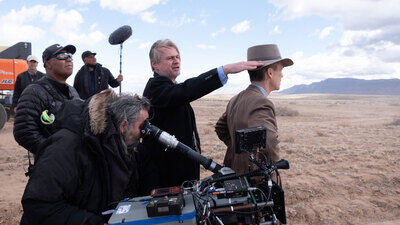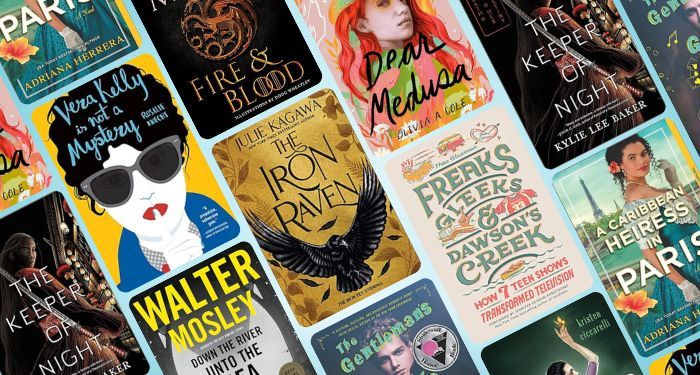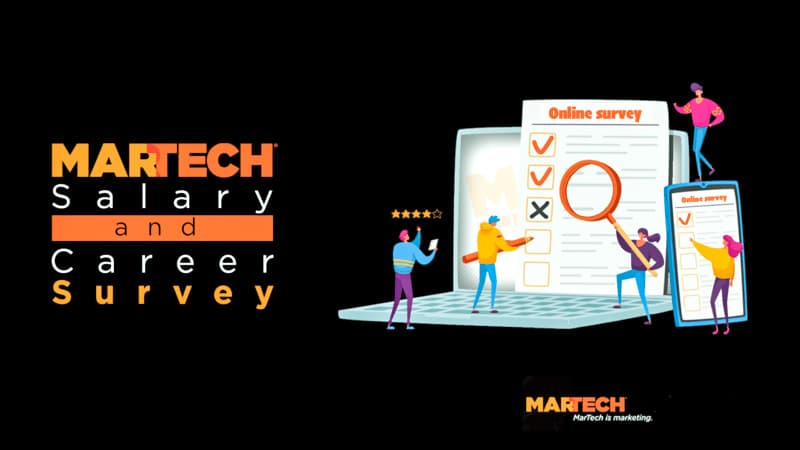It’s always tempting to look at the future of movies through a doomsday filter. With mankind on the precipice of fulfilling science fiction’s dystopian prediction about planet-conquering robots, hurtling toward its own self-prophesied demise like a moth to the flame, there are plenty of reasons to be pessimistic. Yet 2023 also provided us with numerous reasons to be hopeful, not least of all the historic strikes waged by the film industry’s writers and actors, who refused to let their work be devalued in favor of a cost-cutting reliance on Artificial Intelligence.
In a year that commemorated the 100th anniversary of the Walt Disney Company, it was depressing to witness how the studio’s creativity-stifling output was a far cry from the innovative magic that birthed it a century ago. Last month, my wife Rebecca and I attended the traveling Disney100 exhibition in Chicago, and marveled at the humble origins of Walt, who signed a contract in October of 1923 to produce a series of dazzling Lewis Carroll-inspired “Alice Comedies” that blended live-action performers with animation, a technique that was later perfected in the greatest of all Disney films, 1964’s masterpiece “Mary Poppins.”
It is that sort of outside-the-box ingenuity that no computer algorithm can replicate. Throughout this year, I was encouraged to see audiences voting with their tickets by causing Disney’s mediocre blockbusters to underperform, while leading the summer’s unlikely double bill of two bold, risk-taking masterworks—Greta Gerwig’s “Barbie” and Christopher Nolan’s “Oppenheimer”—to rule the box office. Whether studios will take the correct lessons from this phenomenon remains to be seen. Mattel’s proposed slate of upcoming doll-related features reeks of disaster, since it was not the product that made “Barbie” a hit, but the sharply witty, cinephilic mind of Gerwig, whose script co-written with her partner Noah Baumbach, was the exact remedy many moviegoers needed for our post-Roe v. Wade era.
























































![Social Media Spring Cleaning [Infographic] Social Media Spring Cleaning [Infographic]](https://imgproxy.divecdn.com/9e7sW3TubFHM00yvXe5zvvbhAVriJiGqS8xmVFLPC6s/g:ce/rs:fit:770:435/Z3M6Ly9kaXZlc2l0ZS1zdG9yYWdlL2RpdmVpbWFnZS9zb2NpYWxfc3ByaW5nX2NsZWFuaW5nMi5wbmc=.webp)
![5 Ways to Improve Your LinkedIn Marketing Efforts in 2025 [Infographic] 5 Ways to Improve Your LinkedIn Marketing Efforts in 2025 [Infographic]](https://imgproxy.divecdn.com/Hv-m77iIkXSAtB3IEwA3XAuouMwkZApIeDGDnLy5Yhs/g:ce/rs:fit:770:435/Z3M6Ly9kaXZlc2l0ZS1zdG9yYWdlL2RpdmVpbWFnZS9saW5rZWRpbl9zdHJhdGVneV9pbmZvMi5wbmc=.webp)













